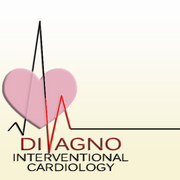How Parents Can Help Their Children Avoid Heart Disease

Heart disease is typically associated with older individuals, particularly those who are overweight. But with one in five children estimated to be obese, it’s clear that heart disease prevention is important for people of all ages. If you’re concerned about your child’s cardiovascular risks, here are a few ways to protect their heart to help them lead long and healthy lives.
5 Ways to Help Your Child Avoid Heart Disease Later in Life
1. Choose Heart-Healthy Foods
Serving nutritious foods with meals will not only help your child grow a healthier heart now but also encourage them to develop smart eating habits they can carry into adulthood. A varied mix of whole grains, fresh fruits and vegetables, fatty fish, and lean protein are the best options. In addition, it’s best to avoid processed foods that contain high amounts of sodium, refined sugar, as well as trans and saturated fats.
2. Exercise Daily
 Children should exercise about 60 minutes a day with light to moderate physical activity—about twice the amount that’s recommended for adults. Playing outdoors is one of the easiest ways to meet this fitness requirement. But if your kid isn’t active enough, consider signing them up for a sports team or cutting their screen time so that they feel encouraged to get outside.
Children should exercise about 60 minutes a day with light to moderate physical activity—about twice the amount that’s recommended for adults. Playing outdoors is one of the easiest ways to meet this fitness requirement. But if your kid isn’t active enough, consider signing them up for a sports team or cutting their screen time so that they feel encouraged to get outside.
3. Stick to a Meal Schedule and Minimize Snacks
Regularly snacking on unhealthy treats can significantly increase a child’s risk of obesity. You can curb this problem by serving meals at the same time every day to help your child sustain proper energy levels and minimize hunger. If they do need a snack, stick to heart-healthy options—such as cheese, nuts, and fruit.
4. Stop Smoking to Set a Good Example
Apart from obesity, smoking cigarettes can severely increase one’s risk of heart disease. That’s why it’s important for parents to quit the habit if they currently smoke. Doing so will not only minimize a child’s exposure to secondhand smoke but also send the message that it’s not a good practice to adopt.
5. Prioritize Oral Hygiene
Although the exact connection remains unclear, gum disease is linked with a higher risk of heart disease. To lower your child’s risk of developing gum disease, make sure that they brush twice a day for two minutes at a time and floss. It’s also important for them to visit the dentist every six months for routine cleanings. Taking these steps will help reduce bacteria-filled plaque that’s responsible for gum disease.
If you or a loved one is concerned about heart disease, DiVagno Interventional Cardiology, MD, PA can help. Located in Rochelle Park, NJ, this local heart doctor can identify symptoms of heart disease and provide treatment to minimize its effects on the body. This practice is also equipped to manage issues that contribute to heart disease—such as high cholesterol and high blood pressure. To learn more about these cardiac care options, visit this Bergen County provider online. For appointments, call (201) 845-3535.
About the Business


